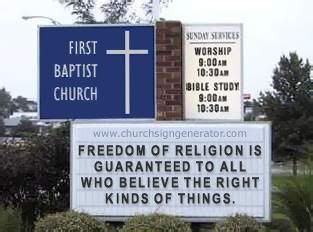I enjoyed a delicious dinner last night at the Noor Islamic Cultural Center as part of their Ramadan Iftar. A large crowd of non-Muslims joined Muslims as they broke their Ramadan fast at sundown. My dinner table included a couple of fellow Presbyterians, one Jew, a couple of young Muslim men, and a non-Muslim friend of theirs. I ended up in a long and very enjoyable conversation with Omar, the OSU sophomore seated next to me. We agreed that I would read the Qur'an and he would read the Bible and we would help each other understand what we read. Both of us lead pretty hectic lives. It will take some effort on both our parts to honor that agreement. Pray for us.
In the course of our discussion, I found myself thinking about the way people of faith sometimes encounter one another. Even when both are committed to interfaith dialogue, we come with our own truth claims, and for Muslims, Jews, and Christians, those claims are rooted in a text. Dialogue can often break down over claims about the truth of my text versus your text.
I suppose that is unavoidable to some extent, but I also wonder about the degree to which this emerges from a modern, Western mindset. Enlightenment, rational thinking often seeks a right answer. Empirical data support or undermine different possible answers, leading to the conclusion that this answer is right and that answer is wrong.
This sort of thinking works very well for some sorts of questions, such as whether or not this medicine will help people with a certain disease, but I increasingly doubt its effectiveness in handling matters of faith.
As a pastor, I do my share of weddings, and when I meet with couples for "premarital counseling" (I hate the term but don't know what else to call it) I usually ask them to tell me about why they want to get married. Their answers used to surprise me, but after 15 years I've come to expect it. Almost never do couples tell me about deep feelings, about things they can't quite name, about a knowledge that isn't really in their head. Instead they talk about the traits they admire in the other. "He's kind and loyal, always there for me." "She's friendly and just listens when I need to vent." I'm sure that's all true, but for the life of me sometimes it sounds like they're describing their dog.
Sometimes it seems that we've taken sacred texts that are meant to touch and transform the heart and treated them like empirical data. And when that happens we end up talking about something that is beyond beauty, that is beyond simple knowing by the intellect, as though we were describing the most mundane sort of thing. On top of that, interfaith discussion can become little more than a conversation about our different sets of empirical data.
I have some hope that we are moving beyond the Enlightenment, beyond modernity, into an age when we may learn to view "truth" as something more complex than right beliefs, as something that embraces paradox and even contradictions. Maybe Omar and I can work on that.
What sort of truth do you find in Scripture?
Click here to learn more about the Daily Lectionary.

No comments:
Post a Comment